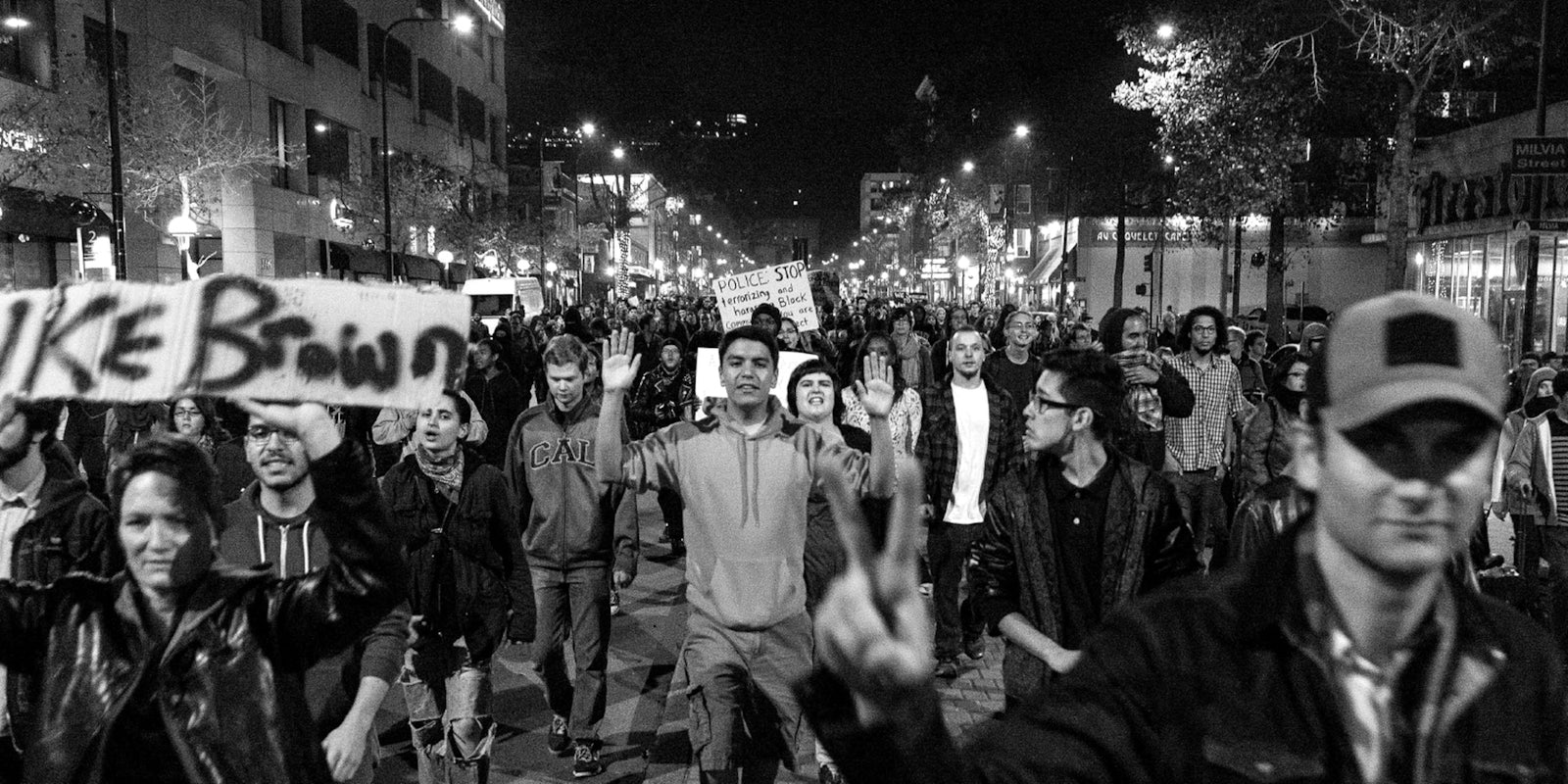Black Lives Matter activist Shaun King just released a detailed account online of the money he’s raised for the movement, in response to allegations that he misappropriated funds meant for the families of victims of police brutality. King reportedly was involved in raising $732,181.83, all of which—based on the evidence he provided—was distributed among the families who lost a loved one to police brutality or needed help paying legal expenses related to the protest of that brutality.
In his post, King also pointed out: “It’s worth noting that George Zimmerman and Darren Wilson raised over $1,000,000 online with minimal effort and little scrutiny.”
Whether or not King misused any Black Lives Matter funds remains up for debate for many, but the broader point is that online fundraising sites have, perhaps unwittingly, lifted the lid on how money travels and how support is expressed in ways that were largely invisible until now.
Never before has public support been enumerated in dollar amounts that are accessible with a click and trackable in real-time.
While many of these fundraising accounts aren’t legal—since several sites do not permit the raising of funds to cover any legal expenses of a person on trial for a crime—they illustrate the widespread support for both sides of these controversial cases.
Never before has public support been enumerated in dollar amounts that are accessible with a click and trackable in real-time.
This method of galvanizing sympathy was given a national stage with the 2012 shooting death of Trayvon Martin by neighborhood watchman George Zimmerman. The racially charged altercation and subsequent protests polarized the country to degrees not seen since the O.J. Simpson murder trial in 1995. However, unlike the Simpson trial, the court of public opinion found a new voice in monetary donations.
Despite outrage from protesters across the country, Zimmerman had many supporters who organized to have his court fees and personal life financed. It was an initiative that moved money to the proverbial mouth and set a precedent for how future public opinion battles would be fought. To date, supporters of George Zimmerman have raised nearly half a million dollars through his personal site therealgeorgezimmerman.com, which has since been removed from the Internet.
If those numbers impress, they were doubled by Ferguson, Mo., police officer Darren Wilson who came under heavy fire for the shooting death of the unarmed black victim Michael Brown on Aug. 9, 2014. The death was chilling, with media-circulated images of Brown’s body left in the scorching sun for hours and eyewitness claims that the teen was shot in the back while running away. Wilson was cleared of any wrongdoing. But once again protests erupted, battlelines were drawn and sides were chosen. And money was raised.
The loss of Wilson’s career was swiftly compensated by his supporters. Barely a year after Michael Brown’s death, Darren Wilson has reportedly collected over a million dollars of donations according to the anonymous woman who has managed several of his online donation outlets, including three Facebook pages: We Are Darren Wilson, I Support Officer Wilson, and Support Darren Wilson. If you’re a skeptic of the numbers, consider the Darren Wilson GoFundMe account that had received $235,000 in donations by the end of September 2014—just two months after Brown was killed—before being taken offline.
The Internet has become a place to show support for both sides of the racial divide, and the power of the purse is as strong as ever.
Since then the trend towards monetary support of racially sensitive cases has only gained steam. So much so that GoFundMe has been forced to take a professional and political position on the issue. Kelsea Little, spokeswoman for GoFundMe, explained the company’s policy to the Daily Dot:
“Campaigns raising funds to benefit people who have been charged with violent crimes are not allowed on GoFundMe. Any campaign that is in violation of our Terms & Conditions will be removed.”
The crowdfunding website elaborated on those terms and conditions after benefactors of the Chicago police officers involved in the April 19 death of Freddie Gray looked to the site to start collecting funds. A GoFundMe account started in support of the officers and their legal fees was removed by the company after the user community flagged the campaign.
Skip ahead to September 2015 and the nation is once again crowdsourcing racial injustice. Just last month Chicago police officer Jason Van Dyke was charged with the shooting death of Laquan McDonald. Initial donations tallying $10,000 were beginning to accrue in a GoFundMe account started by Van Dyke’s wife before GoFundMe quickly closed the campaign.
Or take the case of Oklahoma police officer Daniel Holtzclaw who was on trial this month for the sexual assault of eight black women over a period of five months. The Holtzclaw family initially began a GoFundMe campaign in September and received donations from at least 40 people toward a goal of $100,000. This was also quickly shut down by GoFundMe. Still, this did little to deter Holtzclaw’s supporters who re-emerged in December with a Facebook campaign brandishing the hashtags #freetheclaw and #justicefordanielholtzclaw.
The Internet has become a place to show support for both sides of the racial divide, and the power of the purse is as strong as ever. But if the crowdfunding industry puts down a collective foot on what social causes can be promoted, much of the financial support for racist initiatives will eventually move back into the shadows. The argument can be made this is where it belongs. But the real question is: Should the crowdfunding of racism remain in plain sight where everyone can witness which side of history Americans will support with their dollars?
Tiffanie Drayton is a freelance writer focused on social justice issues. Follow her on Twitter @draytontiffanie.
Image via Annette Bernhardt / Flickr (CC BY 2.0) | Remix by Max Fleishman


